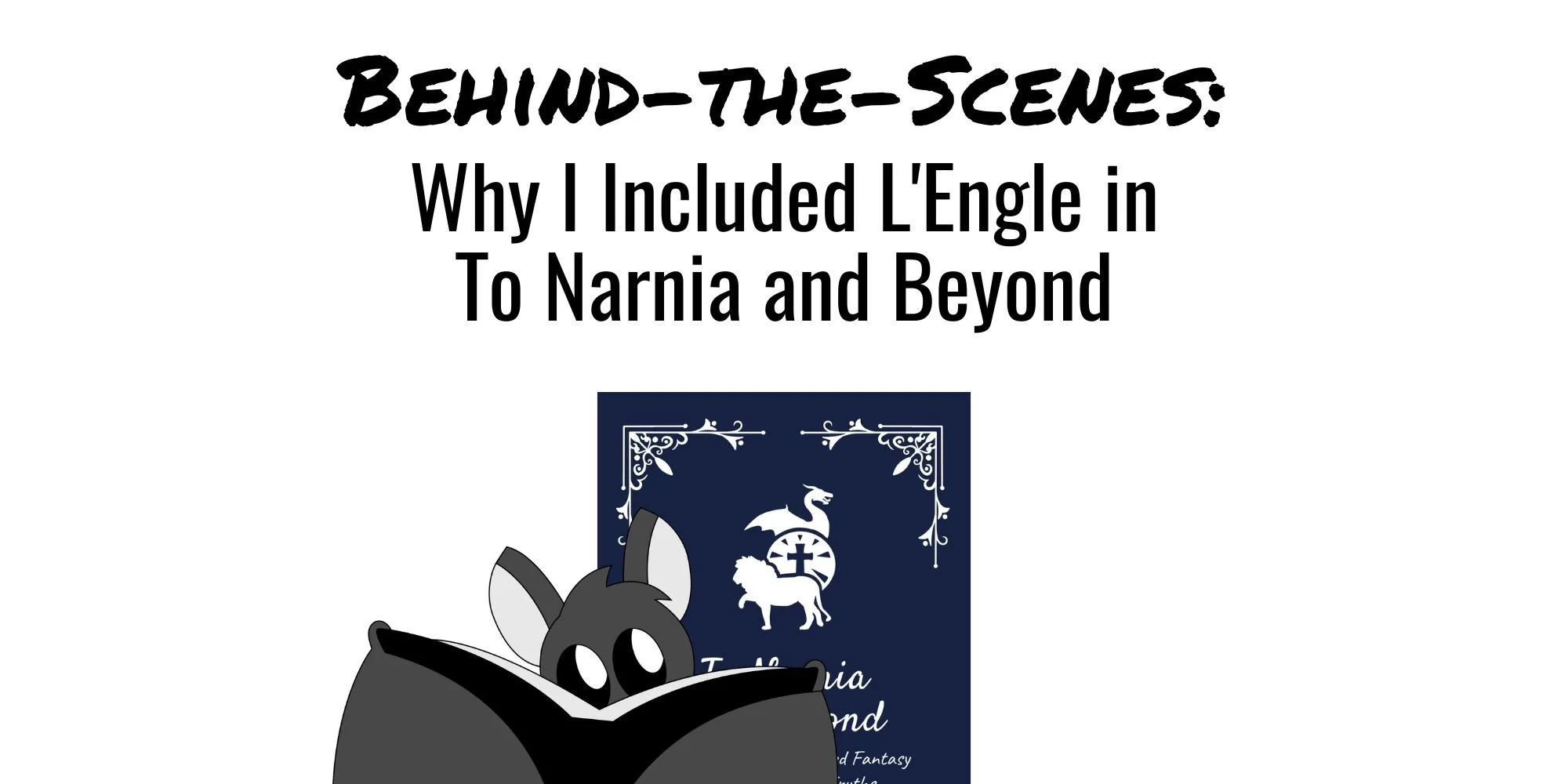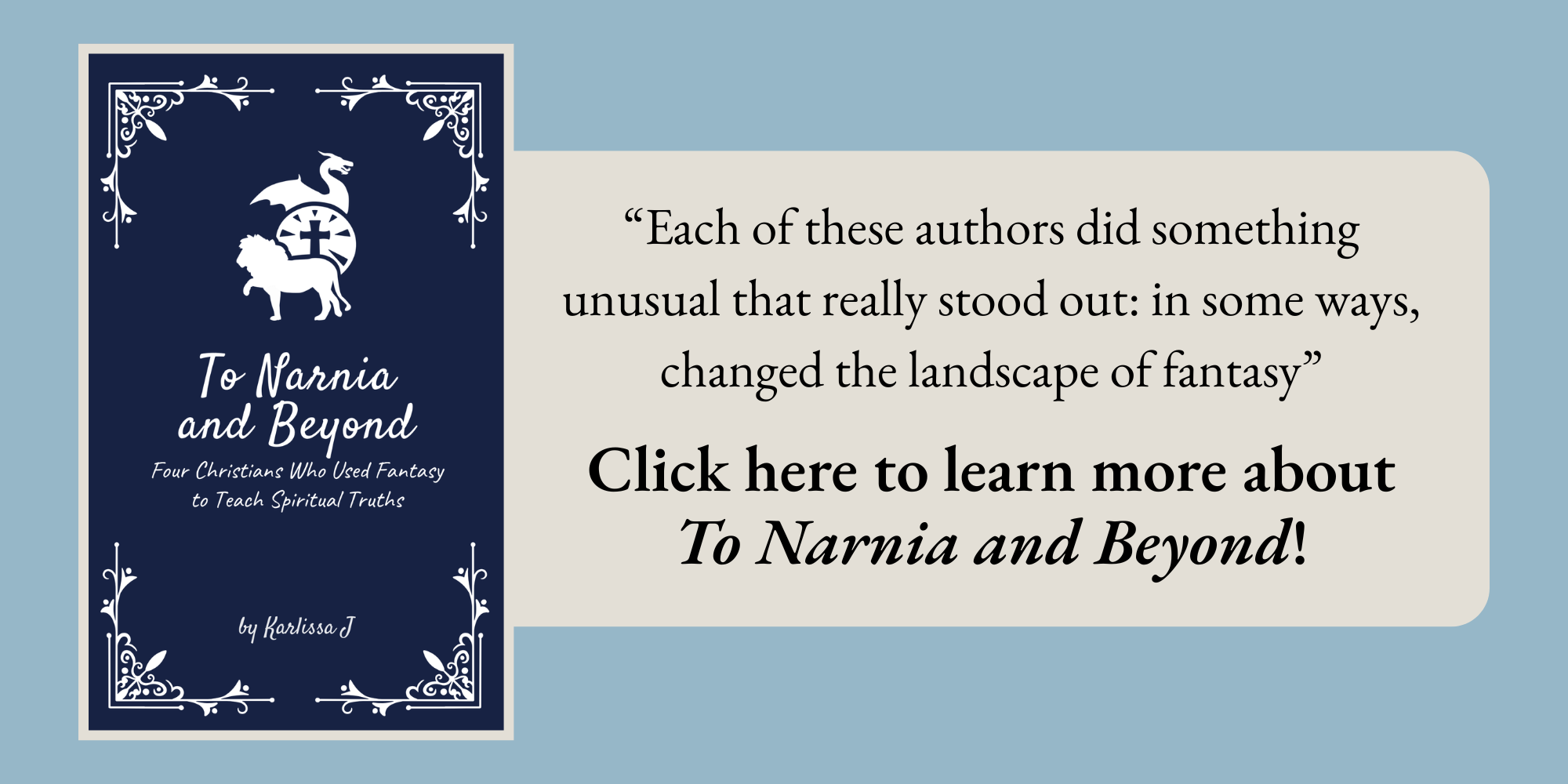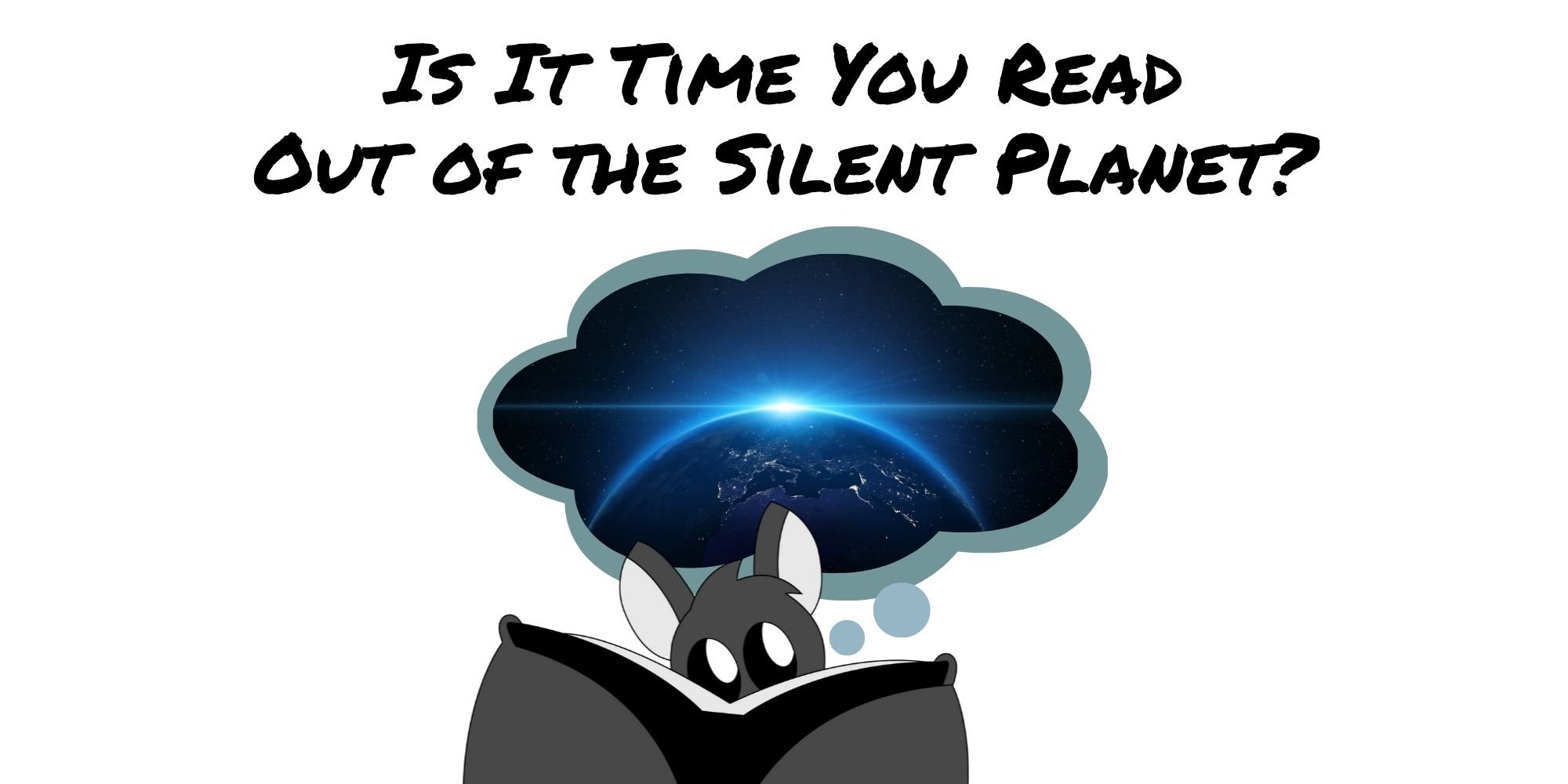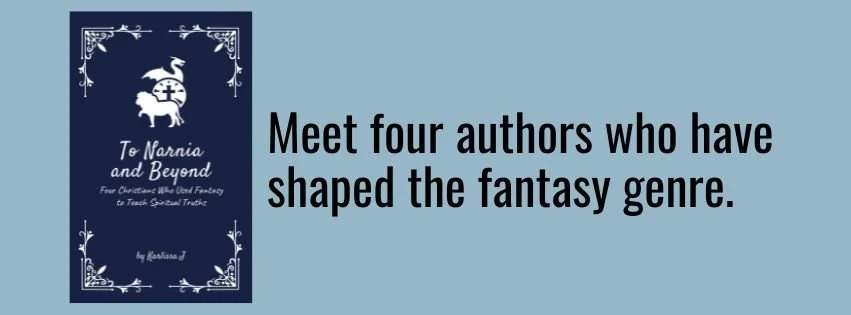Behind-the-Scenes: Why I Included L'Engle in To Narnia and Beyond
By Karlissa J
At one point in my writing of To Narnia and Beyond, I was planning not to include Madeleine L’Engle.
I was still in the process of narrowing down which authors to focus on in my exploration of classic Christian fantasy. I’d decided that only deceased authors would count, as I wanted there to have been enough time to see how their legacy endured beyond them. Three authors were very obviously getting in: everyone knows of J.R.R. Tolkien and C.S. Lewis as pillars of fantasy; and George MacDonald had such a strong impact on Lewis (and on me) that there was no denying his inclusion as well.
But what about Madeleine L’Engle?
She is more recent than the other three: Lewis was the youngest of those men, and she was born on his 20th birthday. Her death occurred in 2007, not quite two decades ago. Her Time Quartet novels are odd, falling somewhere between fantasy and sci-fi. And I found that many readers I spoke to had never heard of her.
So why did I end up featuring her in my book To Narnia and Beyond?
For one, she didn’t stop coming up. It was important to me that each of the authors I included inspired Christians beyond their own generation. What I discovered in L’Engle was that she did just that. One of the people she inspired was painter Makoto Fujimura, whose books on faith and art I have greatly enjoyed. I realised that, even if fewer people have heard of her than Lewis or Tolkien, she has left a creative legacy that continues to inspire.
Second, I couldn’t deny anymore the way her writings had changed me.
Initially, I thought her books were strange. But I found myself contemplating life and my thoughts came to a story she’d told. What does it mean to love your enemy? What does it look like for each creature to submit to being what God called them to be? My children have asked me about baby unicorns, and I’m sure they come from eggs, because L’Engle’s A Swiftly Tilting Planet told me so.
Since I’ve written about her in my book, I have encountered more readers who know of Madeleine L’Engle and have enjoyed her writing. I expect that as I continue to talk to people about classic fantasy novels, I’ll continue to meet those who have been inspired by her.

















